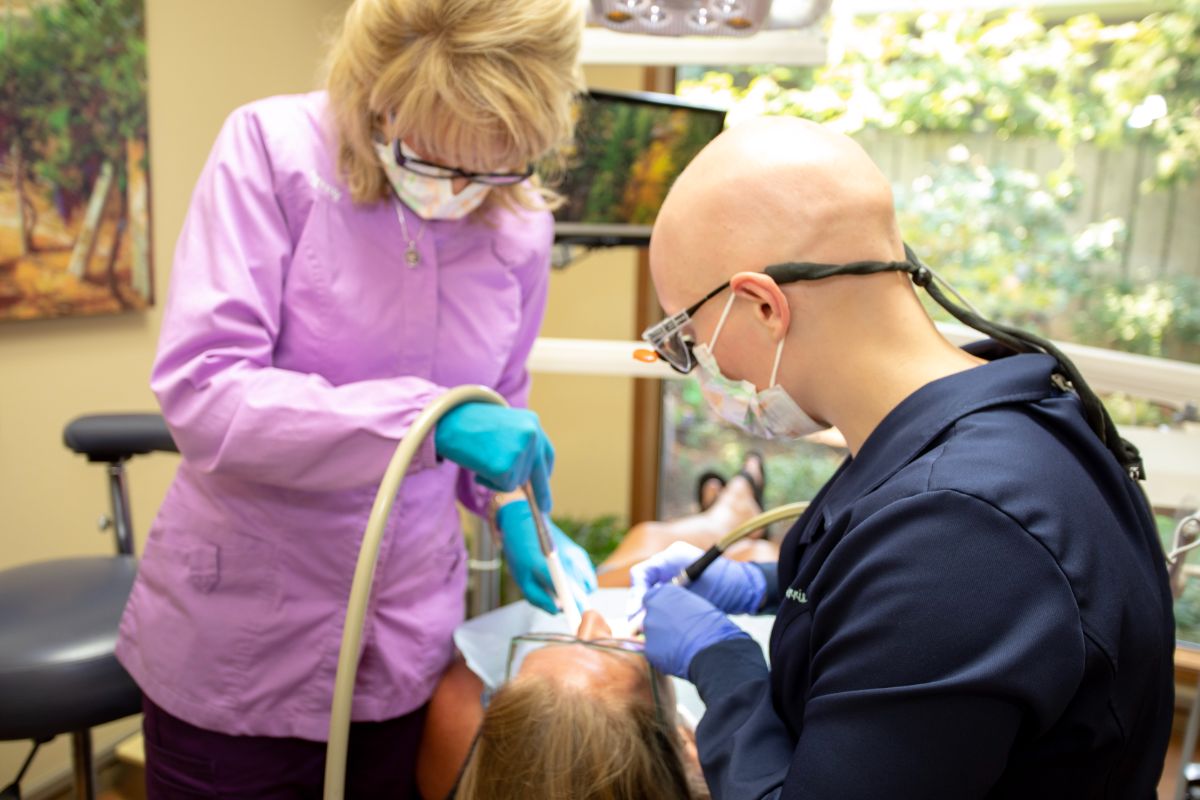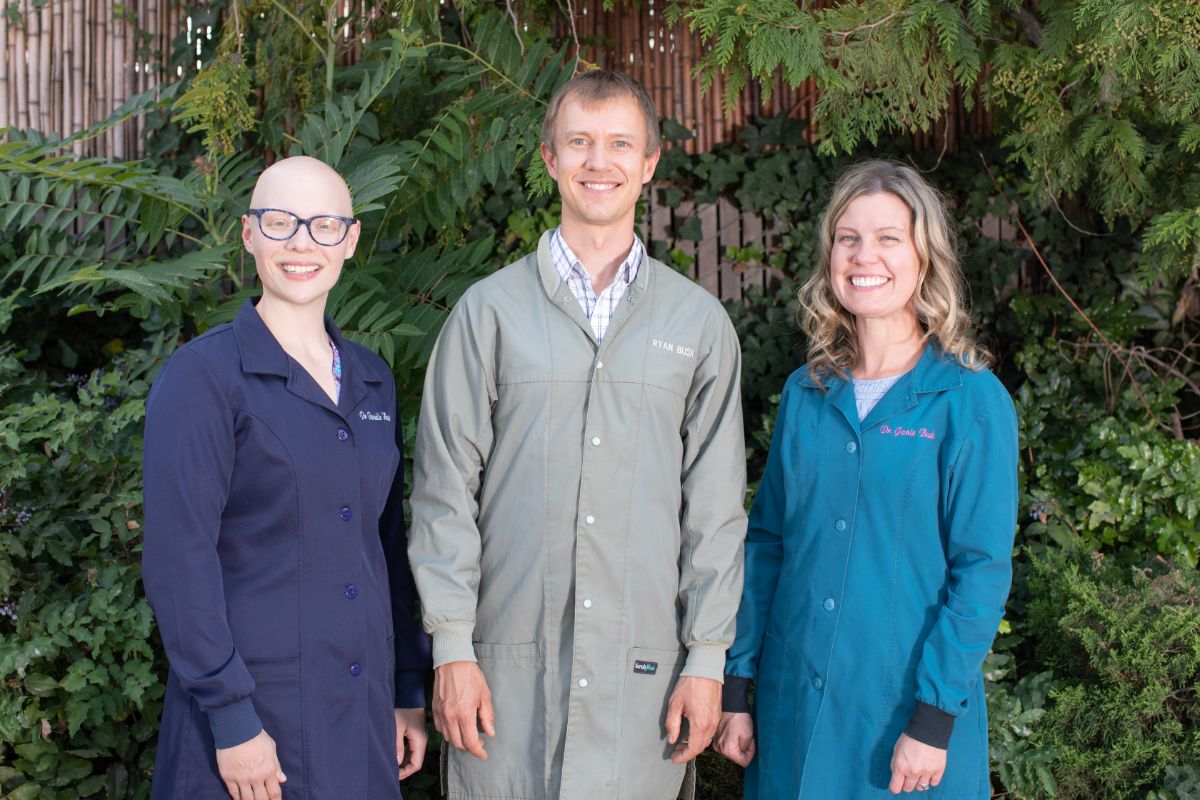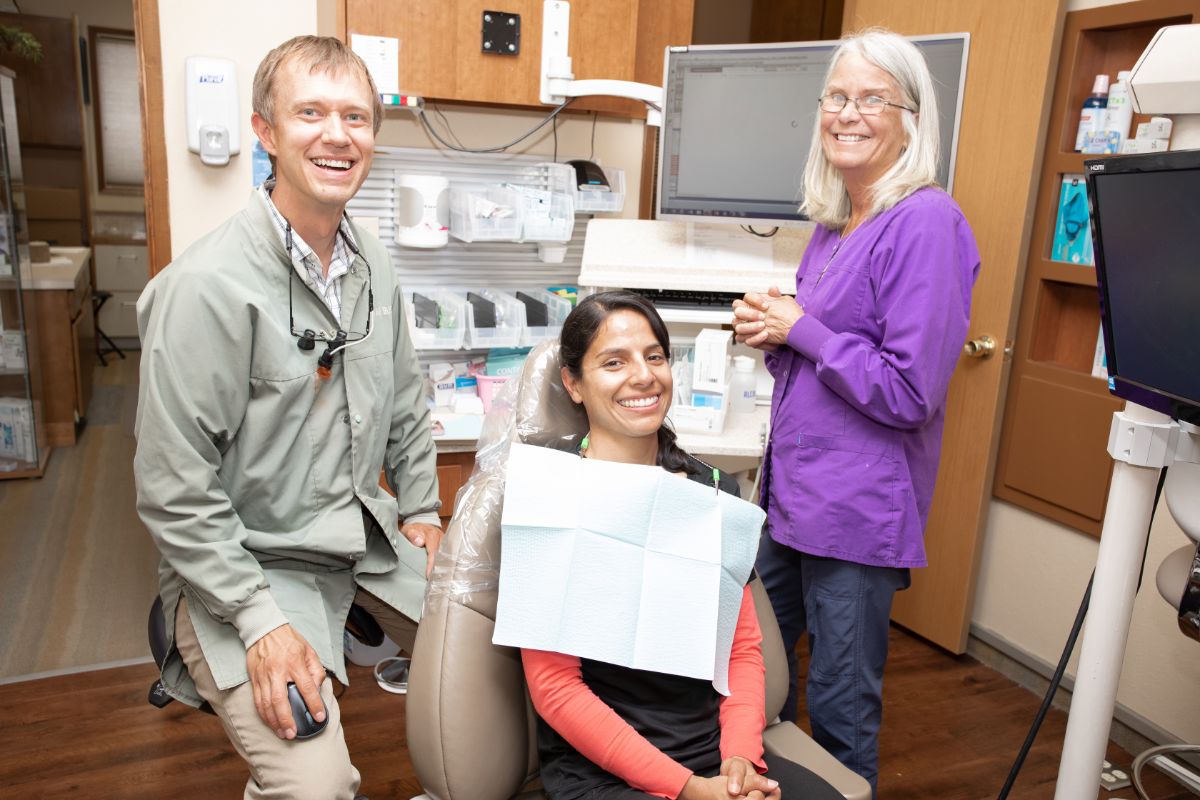If you’ve been struggling with worn, damaged, or missing teeth, we’ve got good news for you—restorative dentistry can help you get your smile back! There are many reasons to explore the restorative treatments available to you. Gaps in the teeth are vulnerable to plaque-causing bacteria, increasing the risk of cavities. These openings can also stress the surrounding teeth since they don’t have as much surface area to chew with. Restorative treatment with Cashmere Family Dentistry can replace your missing teeth and improve the look, feel, and function of your mouth. Let’s take a look at the various treatments we have to offer and how they can help you reclaim your smile!
But first: what is restorative dentistry?
When we talk about restorative dentistry, we mean any dental procedure that repairs or replaces a tooth. The goal of these treatments is to restore the function and appearance of the teeth. In some cases, we’ll only need to work towards one or the other of these goals. With other patients, we may be working towards achieving both of them.
Thanks to modern techniques and cutting-edge technology, it’s easier than ever to achieve natural-looking results. Our restorations are fully functional and designed to blend in beautifully with your existing teeth! We offer the following restorative procedures from our Wenatchee office.
Root Canal Therapy
In order to understand the process and purpose of root canal therapy, or endodontic therapy, it helps to have a basic understanding of tooth anatomy. The hard outer layer of a tooth is called the enamel. Directly beneath the enamel is dentin, which is a slightly softer tissue. The innermost material is the pulp, where blood vessels, nerves, and connective tissues reside. This allows the tooth to grow during development. Once this development is complete, the tooth can survive without the pulp because it is supported by the surrounding tissues.
When a tooth has been affected by decay to the point of infection, root canal therapy may be the only process by which it can be saved. The infected pulp is removed and the cavity thoroughly cleaned. It will then be filled with a biocompatible material called gutta-percha. This is capped with a custom crown to provide structural stability and protection from future infection.
Since root canal therapy removes the infected pulp of a tooth, it eliminates the spread of infection to the surrounding teeth. If you’ve been experiencing severe tooth and gum pain, you may find that root canal therapy can help relieve your discomfort in as little as one visit!

Crown and Bridge Therapy
When a tooth is lost, other teeth along the gums can begin to shift inward in an attempt to close that gap. This can change the way your top and bottom rows of teeth meet together. A sudden difference in the bite like this can lead to other dental problems, including gum disease or teeth grinding. If you have missing, discolored, or cracked teeth, our crowns and bridges offer a long-term solution that’s also fully functional.
Crowns are natural-looking covers or ‘caps’ for your teeth. They make your natural teeth stronger and restore your ability to chew, bite, and speak with ease. Crowns can also be used to fill large gaps left behind from cavities or cover a tooth following a root canal. They help prevent a variety of dental issues, including a misaligned bite, gum disease, and additional tooth loss or displacement.
If you have a gap caused by one or more missing teeth, a dental bridge can be an excellent option, especially if you’d rather avoid traditional dentures. Bridges are affixed to the adjacent teeth along the gums with the use of dental crowns and come in a fixed or removable model. With proper care and regular dental checkups, your dental bridge can last for years.
Dentures
Dentures are custom-made removable appliances that replace your missing teeth and surrounding tissue. They can be taken out and put back into the mouth, and are an excellent option for those looking for a more cost-effective solution than implants. Today’s dentures are specially designed to fit naturally within your smile, giving them an appearance that is virtually indistinguishable from your natural teeth.
There are two main types of dentures: full dentures and partial dentures. Full dentures are used when all the teeth are missing and partial dentures are used when only some teeth are missing. A full denture is a row of prosthetic teeth created to replace each tooth along the upper or lower gum line. They are held in place by natural suction and perhaps a little denture cream. A partial denture can be made to take the place of one to three teeth in a row, as long as there are stable teeth on either side of the gap to hold it in place. This restorative option maintains its position by clipping to other teeth in the mouth.
Dentures can be made out of porcelain or acrylic resin. Porcelain dentures very closely resemble the natural teeth, making them easier to adapt to. However, porcelain dentures are more prone to breakage and can also wear down any remaining natural teeth. For this reason, they work better as a full denture rather than a partial denture.
Dentures made of acrylic resin are nearly weightless and often able to adhere more securely to a denture base. They’re also easier to adjust to the position of the teeth when the jaw is closed. However, they do wear down faster than porcelain and must be replaced every 5-8 years or so.
Dental Implants
Losing an adult tooth is never an enjoyable experience. Our team recognizes that compassionate care is a vital part of the healing process. Selecting a permanent replacement can seem daunting, but with complete dental implant restoration, your smile can be fully restored!
Dental implants are made to restore a missing tooth. Our doctors will first refer you to a trusted oral surgeon who can place the implant. The small metallic rod will be placed directly into the now-empty socket of the absent tooth. Over time, the jawbone and gum tissue in the area will fuse with the implant, forming an artificial root. When your mouth is fully healed, you’ll return to complete the process.
The final step of dental implant placement is known as implant restoration. To conclude your smile transformation, one of our doctors will attach a natural-looking dental crown or fixed bridge, depending on your specific needs. In addition to restoring the function of your smile, you’ll enjoy the improved appearance—the implants will look and feel just like your natural teeth!

Bring your best smile back with Cashmere Family Dentistry
Sudden changes in a bite can lead to many other problems, like crowding, gaps between teeth, and even teeth grinding. Working with our Wenatchee team can help save you from the time and expense of future reconstructive dental work!
If you want to learn more about our restorative treatment options, get in touch today to request an appointment with one of our doctors! You deserve a smile that looks and feels fantastic, and our team is ready to help you achieve that.




